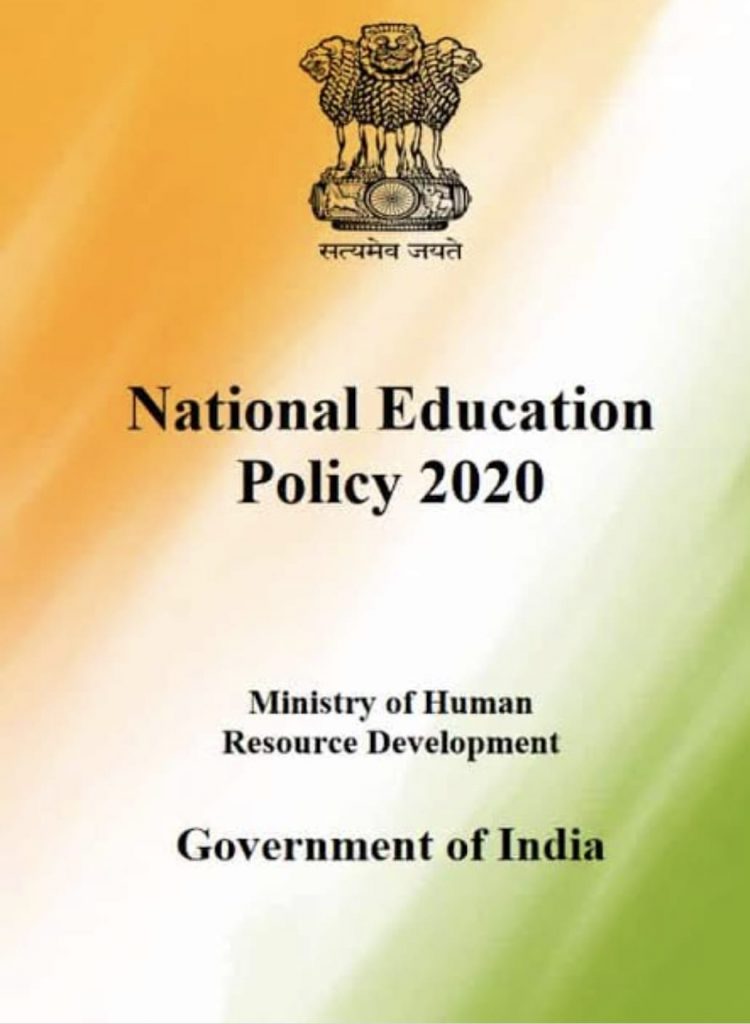Dr Amrita Dass, Career Consultant and Founder-Director, Institute for Career Studies (ICS)
(The writer is member, UP Government Screening Committee for implementing NEP 2020)

(Image Source: Clouddirect.net)
With the new National Education Policy (NEP 2020), the Government of India has crafted an ambitious and much needed programme for revolutionising the school education in the country by 2030 – aiming at a zero-school-dropout rate by the end of this decade.
How will these objectives be achieved?
Through a spectrum of long overdue reforms that seek to bridge the gaps in the delivery of high-quality education, including educational access, participation and outcomes.
To understand the ground-breaking changes that NEP 2020 aims at ushering in, let’s take a look at some of its salient features:
1. Joyful learning with understanding
NEP 2020 focuses on reducing the syllabus to core concepts and facilitates understanding-based knowledge enrichment instead of rote learning.
Teaching-learning methods based on experience, inquiry and discovery will enhance higher order cognitive skills in students. In addition, fun-filled, creative, collaborative and exploratory activities will aim at inculcating values in students while also developing their emotional, social and creative quotients.
Besides, the integration of technology-enabled pedagogy in classes 6-12, will introduce students to blended learning and digital literacy.
2. Elimination of subject silos
NEP 2020 is all for multidisciplinary learning. Hence, students will be able to select subject combinations that are best suited to them. This means that there won’t be any Arts, Commerce, Science silos – a problem that has always restricted students from getting broad-based knowledge. E.g. – A student could pursue maths and history together to chart his/her career in Cliodynamics.
The policy also does not demarcate between vocational and academic segments. This will have an enormous positive impact on empowering students to build unique career portfolios needed for future jobs.
3. Equal weightage to curricular, co-curricular and extra-curricular
With the implementation of NEP 2020, there will be equal focus on curricular, co-curricular and extra-curricular activities. This, along with the development of vocational skills, will promote the students’ overall growth – equipping them with essential entrepreneurial and life skills.
4. Reforms in the assessment system
NEP 2020 recognises the importance of a system that can evaluate students on higher order skills like critical thinking, complex problem solving, creativity, visualisation and innovativeness instead of just taking into account their academic grades/scores.
Accordingly, for a true assessment of the all-round abilities of students and reduction of exam stress, the policy has proposed major exam reforms and innovative methods of ongoing student assessment.
5. Transforming teacher training
NEP 2020 has proposed three pathways for the B.Ed degree. The minimum qualifications for teaching will be a 4-year integrated B.Ed degree (by 2030). The 2-year B.Ed option will be available to applicants who have a bachelor’s degree in specialised subjects, while the 1-year B.Ed route will be open to those who have completed the equivalent of a 4-year multidisciplinary bachelor’s degree or have obtained a master’s degree in a given specialty.
Thereafter, for recruitment by schools, aspiring teachers will need to pass the Teacher Eligibility Test (TET).
The successful implementation of the policy will depend greatly on how well the teachers are trained in the suggested innovative pedagogies.
6. Revolutionising higher education
The NEP envisages a single higher education regulator that will replace the UGC and AICTE. This is aimed at facilitating uniformity in colleges and universities.
To align itself with the NEP, the UGC has come up with a Draft National Higher Education Qualifications Framework (NHEQF).
The NEP also proposes multiple entry and exit points for under-graduation without the loss of an academic year. So, if a student exits the course after the First Year, he/she will receive a Vocational Certificate. On exiting after the Second Year, the student will get an Advanced Diploma; after the Third Year, a Bachelor’s Degree, and after the Fourth Year, an Honour’s Degree. It is believed that this restructuring will increase the students’ job readiness.
Educational bodies have begun making the necessary changes to align themselves with the new NEP. Recently, the UK-based education board, Cambridge International, became the first board in India to bring out a syllabus based on NEP 2020.
Cambridge International also announced that it would take this NEP-aligned curriculum to other countries too – a clear indicator of the enormous potential and merits of our new education policy.
The multidisciplinary approach of NEP – intricacies involved in selecting subjects and later university courses and careers – makes career counselling even more important. For students to be able to make informed educational and career decisions, each school will require a trained and dedicated career counsellor.
The objective of all learning should be to kindle ‘the treasure within’.
Article Research By: Ms Sanchita Dwivedi
Like this post? For more such helpful articles, click on the button below and subscribe FREE to our blog.





One Reply to “NEP 2020: A Giant Leap for Education”